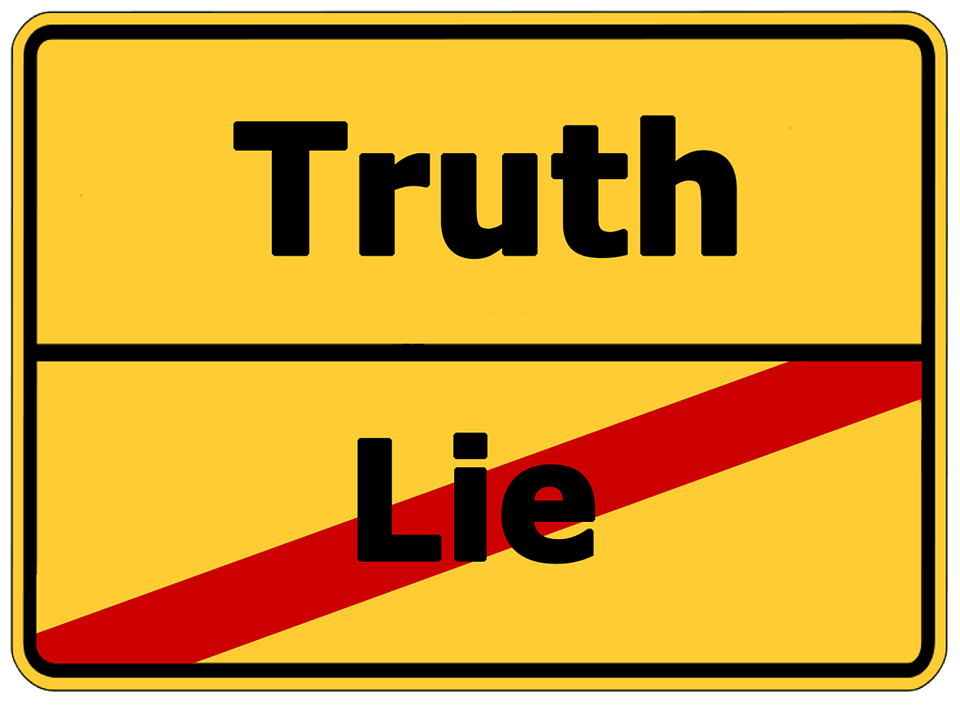 One thing that really gets under my skin are people who lie. I mean, it just bothers me so much. Nothing truly good will come out of a lie, and maybe the worst thing about being lied to is knowing you weren’t worth the truth.
One thing that really gets under my skin are people who lie. I mean, it just bothers me so much. Nothing truly good will come out of a lie, and maybe the worst thing about being lied to is knowing you weren’t worth the truth.
I’m even more bothered by my own lies.
Yes, I confess, I lie too. It’s definitely not something I’m proud of.
I can’t even say that I don’t understand why I do it, because I do understand. Because sometimes, I’m not feeling courageous enough or really feeling “ready” to really tell the truth. Sometimes, in the speed of the moment, I’m caught feeling off-guard, so I “white lie” on impulse.
I kick myself when I find myself suddenly lying on impulse like that. Mostly because, had I taken the time to really think about it, I would not have chosen to lie. But sometimes, in the speed of the moment, we tell a lie.
Side note: In truth, there’s no such thing as a ‘white lie’, is there? There’s just telling the truth, or telling a lie—an untruth, exaggeration or omission of the truth. Seems pretty straightforward to me, if we’re being honest.
Other times I tell lies because I’ve convinced myself that people don’t want to hear the truth. And that point is valid to an extent.
Truth be told: What’s the greater offense?
We seem to get so offended when someone lies to us, don’t we?
But then, we also seem to be offended when someone tells us the hard or uncomfortable truth that we don’t want to hear.
Yes, sometimes the truth hurts—it’s not easy, and we would prefer not to hear it. Sometimes the truth challenges us to go against the grain, to rise above, to go against the norm.
Instead of accepting the truth, we will too often seek out people that are willing to tell us what we want to hear. When the truth hurts, we often look for someone that will lie to us in giving counsel, rather than share the honest truth with us.
On the other hand…
We also want people to love us.
Someone who truly loves us is usually going to be truthful with us, right?
But too often we find ourselves questioning whether or not they love us when they tell us hard things—when they challenge us and call us out. Instead of accepting the hard truth they’ve shared with us and making a change, we push them aside and seek out people with less conviction—people willing to tickle our ears and make us feel alright.
As someone who believes in telling the truth, I’ve found myself criticized by people for telling the truth. When this happens, you find yourself thinking twice about being completely truthful, and instead, sometimes give in to the temptation of watering things down, or letting truths remain unsaid, just to keep the peace.
Is that really loving to someone?

In 1 Kings 22, we hear the story of how Ahab and Jehoshaphat are wrestling with the decision of whether or not they should go to war.
Jehoshaphat encourages Ahab to seek some wise counsel. In fact, he inquired of about 400 men, all of whom said the same thing—yes, go right ahead and go to war, it’ll be a major win!
Given Israel’s track record at the time, this assurance wasn’t necessarily unreasonable. But Jehoshaphat must have felt unsure, and asked,
“Is there not also a prophet of the Lord here? We should ask him the same question.”
To which Ahab replied,
“There is one more man who could consult the Lord for us, but I hate him. He never prophesies anything but trouble for me!”
Let’s examine that for a moment…
Ahab, the king, hates this man because he never prophesies anything good about him.
Who would ever want to tell the truth to this man, if the truth is hard to hear? Would you want to be truthful with someone if it was going to cause them to hate you? Especially someone in power like this.
Were these 400 men all telling kind Aha the truth, or were they telling him what he wanted to hear so that they could earn his favor?
We can fast forward a bit and see that this man of truth (Micaiah) was approached by the king and asked if the he should go to war. Micaiah’s response was,
“Yes, go up and be victorious, for the Lord will give the king victory!”
He said the same thing as all the others.Micaiah was likely feeling the pressure of telling the truth, and he himself told the king what he wanted to hear.
Then king Ahab said to him,
“How many times must I demand that you speak only the truth to me when you speak for the Lord?”
When challenged to tell the truth, he said something different—he told the king that he would be defeated…
“In a vision I saw all Israel scattered on the mountains, like sheep without a shepherd. And the Lord said, ‘Their master has been killed.
The king’s response to Jehoshaphat was incredulous and tell-tale…
“Didn’t I tell you? He never prophesies anything but trouble for me.”
The king didn’t want the truth, he wanted to be lied to. He wanted his ‘ears tickled’ so he surrounded himself with those who were willing to make him feel good about his decisions.
How often do you do this?
Be honest—how often do you find yourself avoiding or even pushing away the people who’ve shared truth with you, only to surround yourself with people who will lie to you to earn favor or make you like them or feel better?
How often do you ignore the truth because it is hard, and find someone who will side with you?
- There are billions of people in this world, and no shortage of people you can find who will agree with your wrongs.
- Expert witnesses in court will present whatever side you want them to if you give them enough money.
- People will tell you what they want to hear for something as little as hoping you will like them.
Do you want to be a person of truth?
Do you want to hear the truth?

Take the time to really consider how you respond to truth when it is hard. Do you keep seeking counsel until you find those willing tell you what you really want to hear?
So tell me, does this resonate with you in any way? Relate to something you’ve experienced in your own life? I would love to hear any thoughts you have with a comment below.
